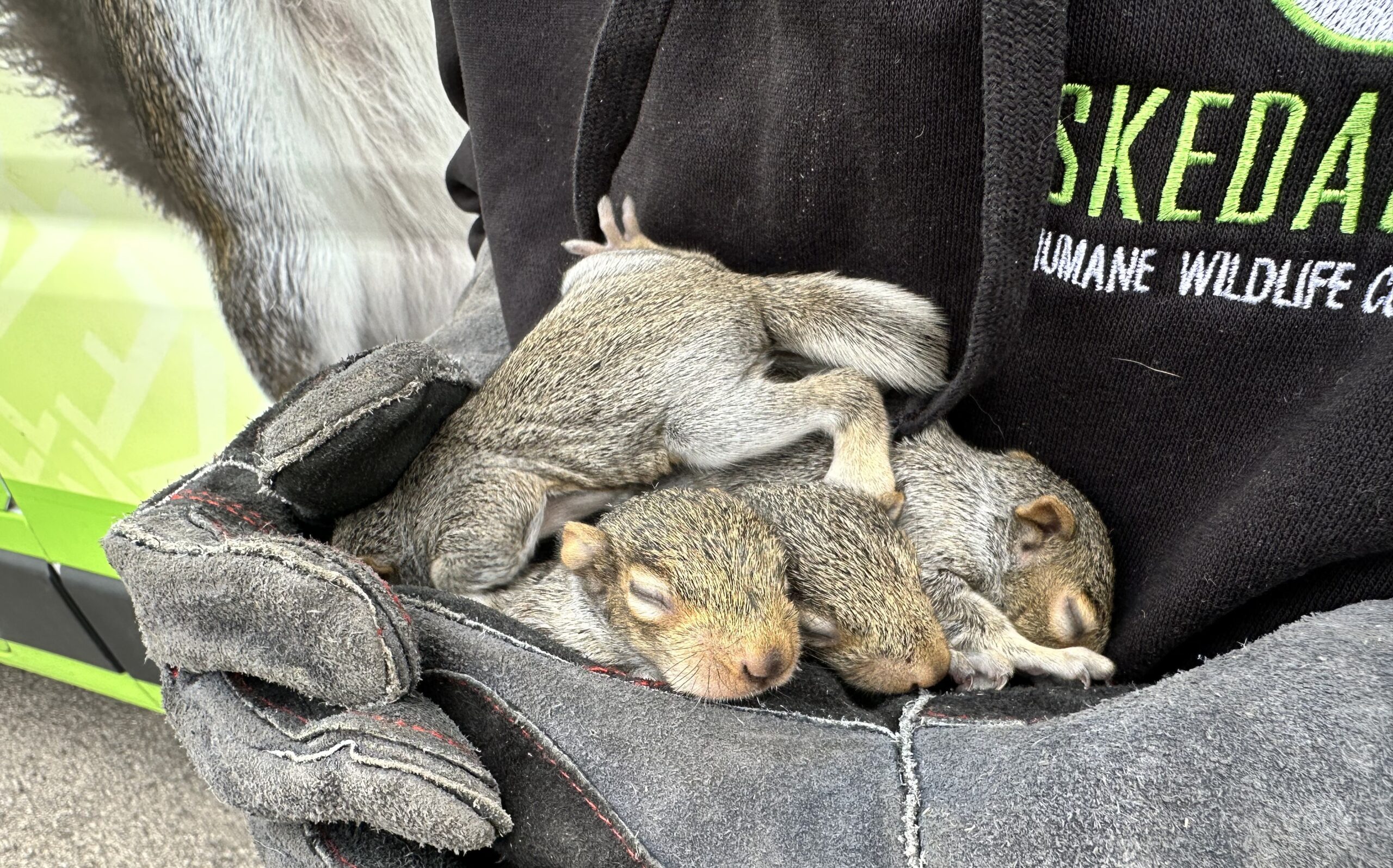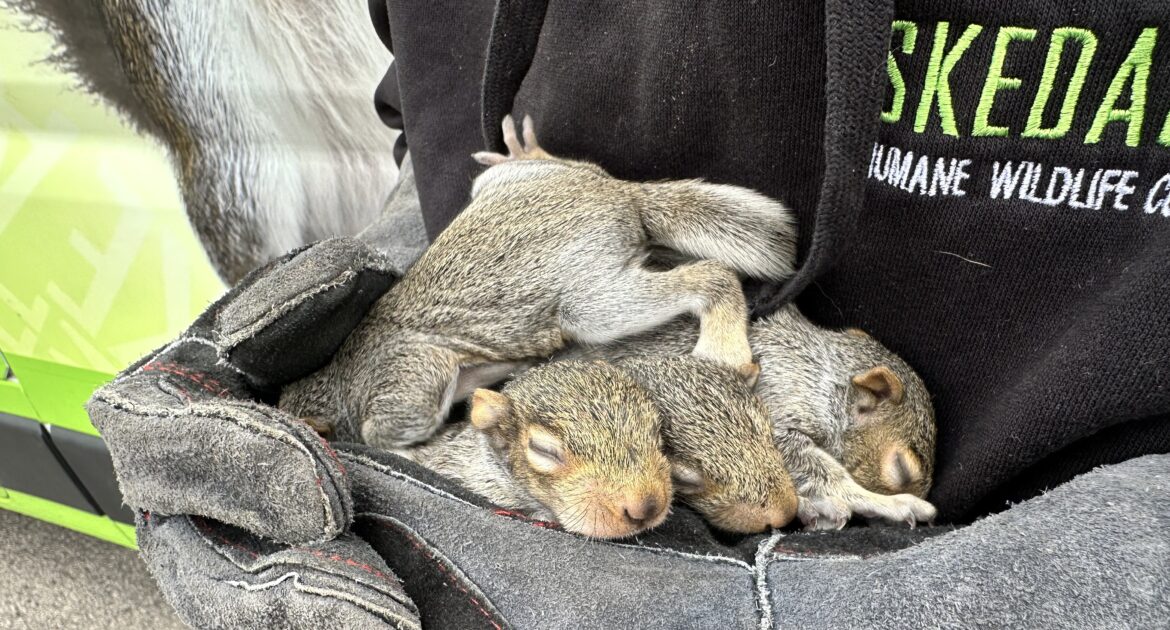Squirrels are a common sight, whether they’re darting across power lines or rummaging through backyards. While they may seem like harmless little creatures, there’s an important fact to keep in mind—they can carry parasites that pose risks to both humans and pets. It’s easy to overlook this while watching a squirrel scurry up a tree, but understanding these risks is essential for keeping your home and loved ones safe.
Parasites carried by squirrels, such as fleas, ticks, mites, and lice, can find their way into your home, potentially causing discomfort, health problems, or even infestations. Fortunately, with the right knowledge and preventive steps, you can minimize these risks and maintain a healthy, pest-free environment.
This guide will take you through the common parasites squirrels carry, how they might enter your home, and the health hazards they bring. We’ll also help you identify signs of an infestation and provide practical tips to prevent parasites from spreading. And if you ever need expert assistance, Skedaddle Humane Wildlife Control in Hamilton offers safe and humane solutions to protect your home.
By the end of this guide, you’ll have all the information you need to understand the risks linked to squirrel-borne parasites and the steps you can take to safeguard your family, pets, and property. Prevention is simple with the right approach, and a little preparation goes a long way in keeping these pesky guests out of your space.
Common Parasites Carried by Squirrels
Squirrels are known hosts to a variety of parasites, and while the thought of bugs hitching a ride on these furry animals might not be pleasant, it’s important to know what we’re up against. Here’s a breakdown of some of the most common parasites squirrels can carry:
- Fleas: Fleas love to latch onto squirrels, and from there, they can end up in your home or on your pets. If you’ve noticed your dog scratching more than usual or seen tiny black specks on your carpet, fleas may already be settling in. Once they find their way indoors, they’re not easy to get rid of, and their bites can cause intense itching and discomfort.
- Ticks: Ticks are more than just a nuisance—they are dangerous. They’re known for spreading infections like Lyme disease, which can seriously affect both humans and pets. Ticks on squirrels can drop into your yard and latch onto anyone passing by, including your family members or pets, making them a health risk worth addressing.
- Mites: These tiny pests can cling to squirrels and infest your home if given the chance. Mites often cause irritation and allergic reactions in people and animals. A mite infestation can lead to widespread discomfort, from itchy skin to rashes.
- Lice: While lice from squirrels don’t typically find humans as hosts, they may still affect pets or cause irritation. For example, you might notice a pet scratching behind its ears or nibbling at its skin more frequently if it comes into contact with lice.
Each of these parasites is harmful in its own way, but they all share one trait—they thrive where there are warm places to live and plenty of hosts to sustain them. By staying informed, you’ll understand how to address these risks effectively and keep your home safe.
How Squirrel Parasites Enter Homes
Parasites don’t simply appear out of nowhere—they usually hitch a ride in specific ways. If squirrels have found a spot in your home to nest, that can be the beginning of trouble. Attics, crawl spaces, and walls are some of their favourite hideouts. Once they’re inside, the parasites they carry aren’t far behind.
One common issue is nesting material. Squirrels gather leaves and other debris, which might already be crawling with fleas, ticks, or mites. Those materials aren’t just left in the attic either. Parasites can drop off and spread throughout your home, ending up in places like sofas or even your bed.
Another concern is droppings. Squirrels leave behind feces and urine, which are perfect breeding grounds for some parasites. Coming into contact with contaminated surfaces, even indirectly, can increase the risk of exposure for humans and pets.
Finally, pets themselves can be unsuspecting carriers. If your dog or cat goes into the yard and lounges where squirrels hang out, they may pick up parasites from the area and bring them indoors. Fleas, in particular, can leap onto animals and travel with ease.
The best way to stay ahead of this is to quickly address any signs of these unwanted guests. Don’t wait until you see physical signs of infestations—by then, the problem could already be widespread.
Health Risks Associated with Squirrel Parasites
When parasites get into your home, they can bring along some serious health risks. These problems can start small, like mild itching, but they can quickly turn into bigger issues if you don’t take action.
Flea bites, for example, are more than just annoying. They can cause allergic reactions in both people and pets, and constant scratching can even lead to infections. Then there are ticks, well-known for spreading illnesses like Lyme disease.
A tick bite can cause symptoms such as fever, fatigue, and joint pain, and if left untreated, it can lead to more serious, long-term health problems. Mites are another concern—they can trigger itchy skin and rashes and, in severe cases, cause pets to lose hair from relentless scratching.
Finally, though less common, lice can still show up, irritating animals and leaving them restless as they scratch and nip at their skin.
All these risks show just how important it is to act quickly if you think parasites might be in your home. Keeping these pests under control is a big step toward protecting the health of your family and pets.
Signs That Squirrels and Their Parasites Are in Your Home
It’s not always easy to tell if squirrels or their parasites have made their way into your home, but there are some signs you can look for. One of the most common clues is unusual scratching or scurrying noises coming from your attic or inside the walls. This could mean a squirrel has found a cozy place to settle in.
Another red flag is noticing droppings or shredded materials, like leaves, paper, or bits of insulation, which might indicate that squirrels are nesting nearby. You may also see an increase in fleas or ticks, especially on your pets or in carpets, which could signal a nearby source.
Sometimes, unexplained itchy bites on family members can point to a parasite problem, especially if you’ve ruled out other causes. Spotting these signs early can help you act fast and avoid a bigger issue down the road. The sooner you address it, the easier it will be to keep your home pest-free.
Tips to Prevent Parasite Spread from Squirrels
The best way to deal with squirrels and the parasites they carry is to stop the problem before it starts. Here are practical steps you can take to reduce the risk:
- Seal Entry Points: Inspect your home for holes, cracks, or gaps where squirrels might squeeze through. Use sturdy materials like wire mesh to block these entryways.
- Keep Your Attic Clean: If you’ve had wildlife in your attic before, safely remove old insulation or materials and replace them with new ones to discourage pests.
- Check Pets Regularly: Regularly examine your pets for fleas and ticks, especially after they’ve spent time outdoors. Preventative treatments can also help.
- Trim Tree Branches: Squirrels often access rooftops via nearby tree branches. By trimming branches away from your roof, you make it harder for them to reach your home.
- Store Food Properly: Use sealed containers to store pet food and snacks. Accessible food can attract animals to your home and make them more likely to stick around.
Taking these steps can go a long way in keeping your home free from pests and the problems they bring.
The Final Word on Squirrels and Parasites
Squirrels may not seem like a big threat, but the dangers tied to the parasites they carry shouldn’t be overlooked. By staying informed and proactive, you can reduce the chances of an infestation and keep your family safe.
At Skedaddle Humane Wildlife Control in Hamilton, we understand these risks and are here to help. Our team of experts specializes in humane squirrel removal and exclusion techniques, ensuring these animals are safely removed and unable to return. If you’re dealing with a potential squirrel problem or want to reinforce your home’s protection, we’re here to provide advice and service you can rely on.
Understanding squirrel-borne parasites and preventing parasite spread from squirrels are essential steps for maintaining a healthy, pest-free home. Don’t wait for the problem to grow—take action now, protect your property, and feel confident knowing your family is safe.




